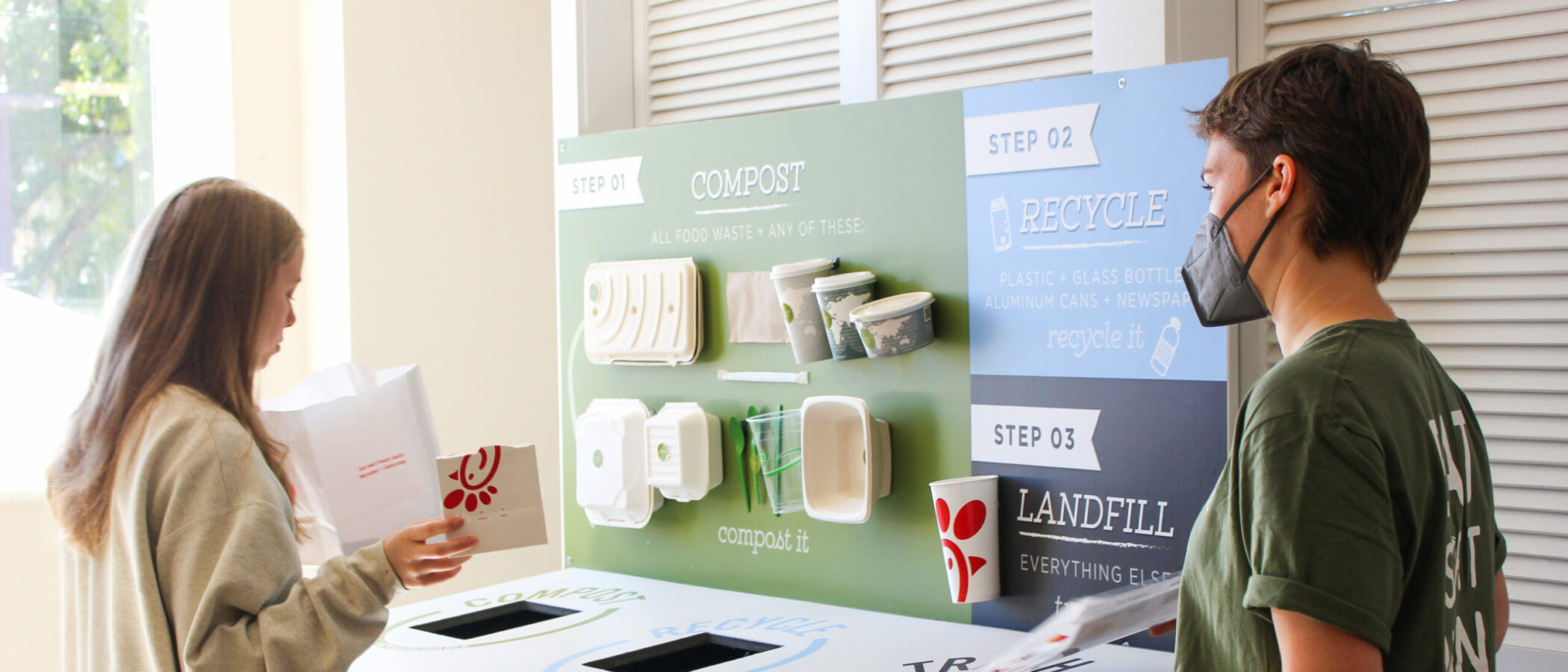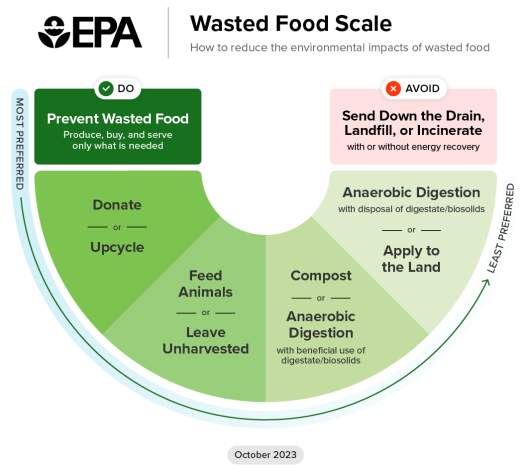
Food Recovery

Wasted Food Scale
The US Environmental Protection Agency (EPA)’s Wasted Food Scale, formerly known as the Food Recovery Hierarchy, prioritizes actions that prevent and divert wasted food from disposal.
Here at UNC-Chapel Hill, we utilize all of the most preferred pathways that apply to us! Read below to learn about our efforts:
Prevent Wasted Food:
- The Pick Your Portion campaign aims to reduce food waste by encouraging students to request the portion size that best fits their needs. Students can now request half portions at several stations in the dining halls, reducing the chance for leftover food being sent to the dish return.
- Our culinary team employs a food waste management process to identify, track and eliminate wasteful procedures. They also track food production every meal to better forecast future purchasing.
Donate:
- We partner with the Food Recovery Network to donate surplus prepared food from Lenoir Mainstreet, Beach Cafe, and Cafe McColl to the Inter-Faith Council each week.
- We donate surplus fruits and bakery items to the Carolina Cupboard when available.
Upcycle:
- When high quality ingredients are left over at the end of a meal period, our culinary team works to incorporate them into the next day’s menu to reduce waste.
- Our Executive Chef Michael Gueiss won a Menu Master award in 2022 for his Low Waste Bowl recipe that features ingredients that would otherwise be composted!
Feed Animals:
- Each week, we donate produce trim waste from the Top of Lenoir salad bar to Jenna & Friends Animal Sanctuary. We divert approximately 500 pounds a semester, which is fed to their pot-bellied pigs!
Composting:
- We compost pre-consumer waste in both dining halls, Lenoir Mainstreet, Beach Café, Bojangles, and Joe Van Gogh.
- Post-consumer composting is available in both dining halls, Lenoir Mainstreet, Beach Café, Joe Van Gogh, and the Student Union. We compost all food returned on the dish belts in Chase and Top of Lenoir!
Anaerobic Digestion (with beneficial use of digestate biosolids):
- Fryer oil is filtered at both dining locations for extended life and then recycled into biodiesel through our partnership with FiltaFry. Each semester, we recycle approximately 25,000 pounds of oil- reducing our greenhouse gas emissions by over 82,000 pounds. That’s the carbon equivalent of planting over 4,000 trees!